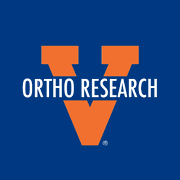Weightbearing
Study Contact:
- Dayna Sawyer
- 434-243-0246
- Cell: 217-853-5342
IRB-HSR 21994
Clinic Visit Registration: 21994-Weiss
Inclusion Criteria
- Adults ages 18 years or older
- Surgically treated open or closed fractures of the ankle (OTA Codes 44A,B,C) meeting one of the following criteria:
- Open or closed bimalleolar fracture of any two malleoli (i.e.lateral/medial, medial/posterior, lateral/posterior)
- Open or closed bimalleolar equivalent SER4 fractures (lateral malleolus fracture requiring fixation and no medial or posterior malleolus fixation)
- Open or closed trimalleolar fracture with fixation of at least two malleoli (i.e.lateral/medial, medial/posterior, lateral/posterior)
- Operative treatment of an isolated lower extremity unicondylar tibial plateau fracture (AO/OTA 41B1, Schatzker Type 1 or 4) without joint impaction
Exclusion Criteria
- Gustilo Type III injuries or soft tissue injury of either lower extremity that would contraindicate immediate or delayed WB
- Syndesmotic injuries/ fixation
- Osteoporosis as defined by treatment with a bisphosphonate and/or other osteoporosis medications, including Prolia and Forteo; or a prior fragility fracture (e.g., spine compression, proximal humerus, distal radius, femoral neck/intertrochanteric fracture)
- Neuropathy, defined as diagnosis of peripheral neuropathy in medical record, neuropathic foot ulcer, or diminished or absent plantar sensation to light touch.
- Pathologic fracture related to neoplasm
- Fractures and dislocations to the ipsilateral or contralateral lower limb that prevent weight bearing as tolerated after first post-op visit
- Other contra-indication to immediate or delayed weight bearing (e.g., ipsilateral fracture effecting weight bearing status such as a calcaneus fracture); fractures of the ipsilateral lower extremity that would not affect WB status may be included (e.g., proximal femur, femoral shaft or tibia shaft fractures)
- Any upper limb injury that would limit upper extremity weight bearing (e.g., surgical neck fracture of proximal humerus)
- Injuries to other body systems that would affect the ability to comply with either WB protocol (e.g., spinal cord injury; severe TBI; major abdominal or chest injury)
- Patient has third degree burns on >10% total surface area affecting the study limb.
- Tibial plateau fractures that are required to wear a locking brace or fractures that require fixed immobilization beyond four weeks (e.g., cast)
- Non-ambulatory pre-injury
- Pre-injury limitation to ROM of ipsilateral hip, knee or ankle
- Morbidly obese (BMI >40)
- Documented psychiatric disorder requiring admission in perioperative period
- Severe problems with maintaining follow-up (e.g., patients who are prisoners or homeless at the time of injury or who are intellectually challenged without adequate family support)
Study Summary
Multi center, randomized controlled trial
- To compare outcomes following early vs delayed wight bearing for adult patients operatively treated for an ankle fracture without syndesmotic fixation. Additionally, early weight bearing will be tested in patients with unicondylar plateau fractures that do not involve joint impaction in the context of a pilot study.
Clinical Follow Ups:
- Screening
- Visit 1: 2 wk post-op
- Weeks 0-12: at home exercise
- Visit 2: 6 wk clinic visit
- Visit 3: 3 month clinic visit
- Visit 4: 6 month clinic visit
- Visit 5: 12 month clinic visit or Phone call
- If determined clinicall healed prior to this visit only phone call will occur
Payment
$150 total
- $25 at the completion of each study visit: enrollment, 6 wk, 3 mo, 6 mo
- $50 at the completion of final study visit: 12 mo
